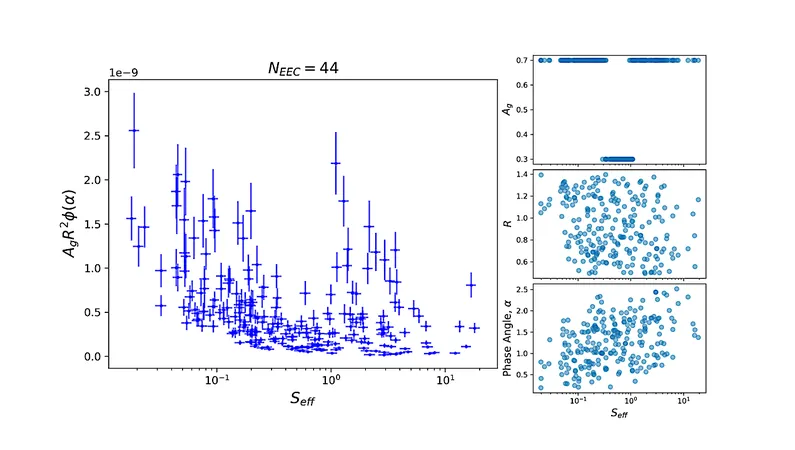
Unlocking the Secrets of Exoplanets: How NASA's Habitable Worlds Observatory Could Shape Our Understanding of the Habitable Zone
2025-09-10
Author: Li
The Quest for Earth-like Planets
Could NASA's forthcoming Habitable Worlds Observatory (HWO) revolutionize our understanding of Earth-sized planets? This groundbreaking study dives into the potential of future direct imaging missions to uncover critical insights about planetary conditions in our quest to find extraterrestrial life.
Simulation Insights into Planetary Albedo
Using an innovative framework known as Bioverse, researchers simulate how space-based coronagraphy missions might reveal trends in planetary albedo—essentially the reflectiveness of a planet—relative to the amount of stellar radiation they receive, referred to as 'instellation.' This data could help outline the boundaries defining the habitable zone where life-sustaining conditions may exist.
Statistical Techniques Unveiled
The study crafts a synthetic population of planets to test the HWO's potential. By injecting various albedo trends into this simulated planetary group, scientists can calculate how many Earth-like planets (exoEarths) are necessary to confidently identify these trends. The results reveal that to detect strong albedo trends with high confidence, around 25 to 30 exoEarths are needed. However, if the trends are weaker, that number could skyrocket.
The Challenge Ahead
If the HWO aims to fulfill the Decadal Survey's target of studying 25 exoEarths, it may successfully identify marked trends in planetary albedo, highlighting habitable zones. Yet, the mission will face significant challenges in detecting subtler trends.
Innovative Strategies for Success
To overcome these hurdles, researchers are investigating various strategies to enhance the recovery of weaker trends. These may include minimizing uncertainties in observables, adding new measurements like planet color, and obtaining direct data on planetary albedo through full spectral retrievals.
A Glimpse into the Future
This research not only sets the foundation for understanding habitable environments far beyond our solar system but also positions the HWO as a beacon of hope in the search for alien life. As researchers refine their techniques and methodologies, the mystery of the universe continues to unfold, bringing us one step closer to discovering if we truly are alone.


 Brasil (PT)
Brasil (PT)
 Canada (EN)
Canada (EN)
 Chile (ES)
Chile (ES)
 Česko (CS)
Česko (CS)
 대한민국 (KO)
대한민국 (KO)
 España (ES)
España (ES)
 France (FR)
France (FR)
 Hong Kong (EN)
Hong Kong (EN)
 Italia (IT)
Italia (IT)
 日本 (JA)
日本 (JA)
 Magyarország (HU)
Magyarország (HU)
 Norge (NO)
Norge (NO)
 Polska (PL)
Polska (PL)
 Schweiz (DE)
Schweiz (DE)
 Singapore (EN)
Singapore (EN)
 Sverige (SV)
Sverige (SV)
 Suomi (FI)
Suomi (FI)
 Türkiye (TR)
Türkiye (TR)
 الإمارات العربية المتحدة (AR)
الإمارات العربية المتحدة (AR)